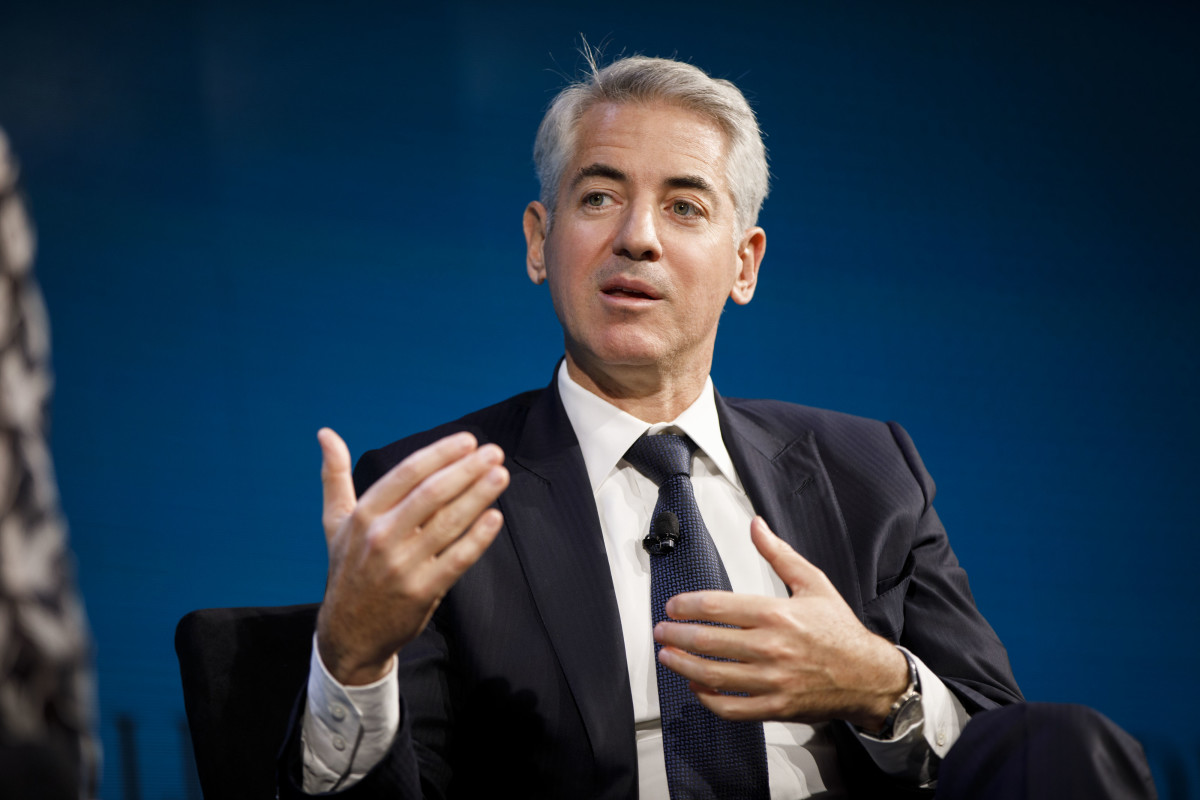
Bill Ackman, the mercurial hedge fund manager behind Pershing Square Advisors, a hedge fund with $18 billion in assets under management, isn’t a newbie when it comes to dealing with pushback or adversity.
He’s been criticized for his tendency to short stocks, including a multiyear Wall Street war he waged against the popular vitamin seller Herbalife. He’s also faced controversy for publicly sharing his political views, including a recent battle with Harvard over how it handled student protests stemming from the attacks on Israel last year.
The latest blow Ackman has been dealt is courtesy of the Securities and Exchange Commission (SEC). The regulator has reportedly pressed pause on the initial public offering of a new fund from Ackman that aims to bring his unique hedge fund approach to the masses.

A hedge fund for everyone?
Hedge funds are designed to manage investment risks by using techniques like short selling. However, many funds fail in their attempts to offset risks, making them only suitable for those with deep pockets, iron stomachs, and a penchant for risk-taking.
As a result, investors can only invest in funds like those run by Ackman if they’re accredited. To be considered an accredited investor, most need a net worth of more than one million dollars and income above $200,000.
Related: Billionaire Bill Ackman just sold this popular retail stock
As you can imagine, a high bar like that means that many investors are left on the sidelines, unable to participate in funds that have beaten the odds and proven successful.
Ackman hoped to change that, at least a little.
In February, the billionaire hedge fund manager filed with the Securities and Exchange Commission for approval to launch a closed-end, large-cap growth stock fund.
The fund, which could trade under the ticker symbol PSUS, promised to invest in "12 to 24 core holdings in large-capitalization, investment grade, free-cash-flow-generative North American durable growth companies" that "exhibit significant valuation discrepancies between current trading prices and intrinsic business (or net asset) value, often with a catalyst for value recognition."
That sounds good, but don’t expect the fund to short stocks directly. Instead, it will focus on going long large-cap value stocks to leverage Ackman’s research.
The SEC filing says:
"The Adviser’s focus on deeply undervalued investments is due to its belief that a well-priced purchase is often one of the most important determinants of the success of an investment. In addition, the Adviser believes that the acquisition of a portfolio of investments, when acquired at a large discount to intrinsic value, provides a margin of safety that can mitigate the likelihood of an overall permanent loss of the Fund’s capital."
While it won't short-sell individual stocks, it does plan to "use derivatives, such as equity and credit derivatives and put options, to achieve a synthetic short position in a company without exposing the Fund to some of the typical risks of short selling, which include the possibility of unlimited losses and the risks associated with maintaining a stock borrow."
Not so fast, Ackman
Ackman’s closed-end fund was supposed to be priced and begin trading on July 29. However, a letter that Ackman sent to its board was forwarded to the SEC, and the SEC says that it needs to take a minute to consider it before granting the official go-ahead, according to the New York Times.
Related: Why billionaire investor Bill Ackman is a Warren Buffett devotee
While Ackman had high expectations for how many investors would flock to the fund when he initially proposed it, his optimism has faded a bit.
The fund was anticipated to attract $25 billion in assets. According to the letter, that’s been revised downward to about $2.5 to $4 billion, with a cap of $10 billion.
Ackman still anticipates some high-profile investors, though. The letter says that they've held 150 "in-person and Zoom meetings, town halls, financial advisor teach-ins" and that Seth Klarman’s Baupost Group, Putnam Investments, and the Teachers Retirement System of Texas are all signing on. It also said an unnamed family office was considering acquiring 9.9% of the closed-end fund.
Not everyone, however, has said "yes."
Ackman's letter points out that some fund managers have balked because of concerns that owning PSUS would violate their investment mandate, which requires them to avoid investing in another manager's investment vehicle.
Ackman says that to overcome that hesitation, they invoked Warren Buffett.
"We make the case that if you can own Berkshire, an investment holding company that owns both controlling stakes in companies as well as public securities, then why should you not be able to invest in an investment holding company that buys minority stakes in public companies at a discount with a path to control, in a company and with a tax-exempt corporate tax structure."
Ackman said while that "argument wins the day for many," it doesn't convince everyone, and "Some of the largest mutual fund complexes have passed for this reason," including Capital Group Companies.
When will Ackman’s closed-end fund launch?
That’s the billion-dollar question.
Wall Street Expert Interviews:
- Fund manager at $15B firm picks auto stock as single best trade
- 3 midcap growth stock ideas from a $225 million fund manager
- $1 billion fund manager reveals 3 midcap stock picks
The New York Stock Exchange site says the fund is “Pending on a Date to be Announced.” That’s not overly helpful. But it’s unlikely that the SEC delay will derail the offering entirely. Instead, it’s likely to be a speed bump.
The NYT reports that an S.E.C. review will likely require Ackman to “make additional disclosures that the agency will then have to sign off on.”
As a result, they estimate a potential launch of the fund later this week or early next week.
Related: Veteran fund manager sees world of pain coming for stocks







